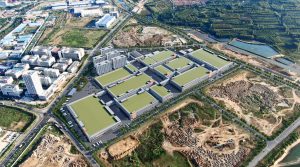News

According to ijiwei, citing the Economic Times, Japanese chipmaker Renesas Electronics says its situation with Wolfspeed does not affect its OSAT joint venture with CG Power in India. Renesas also clarifies that it has no plans to produce SiC devices under the OSAT collaboration, the report highligh...
News

Amid escalating U.S.-China tech tensions and geopolitical risks, Chip War author Chris Miller and Vishnu Venugopalan—a Harvard fellow and Indian Administrative Service officer—recently co-authored a report titled "Apple’s Supply Chain: Economic and Geopolitical Implications," analyzing Apple...
News

According to CNBC, U.S. President Donald Trump said he told Apple CEO Tim Cook that he is against the company manufacturing its devices in India, instead urging Cook to bring production back to the U.S. Trump also added that Apple plans to ramp up its U.S. manufacturing, though he did not provide...
News

According to a Reuters report, India's cabinet has approved a 37.06 billion rupee (USD 435 million) semiconductor plant to be developed as a joint venture between HCL Group and Taiwan's Foxconn. Citing India’s Information Minister Ashwini Vaishnaw, the report states that the plant will have a m...
News

It’s reported that a team of 30 scientists from the Indian Institute of Science (IISc) has submitted a proposal to the government to develop Angstrom-scale chips, which will leverage new semiconductor technologies based on two-dimensional (2D) materials. The proposal suggests that using these adva...